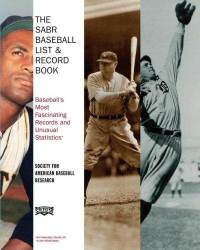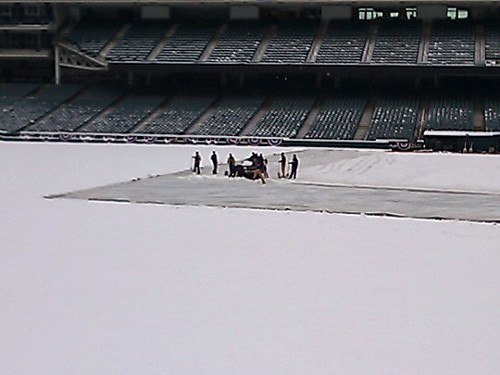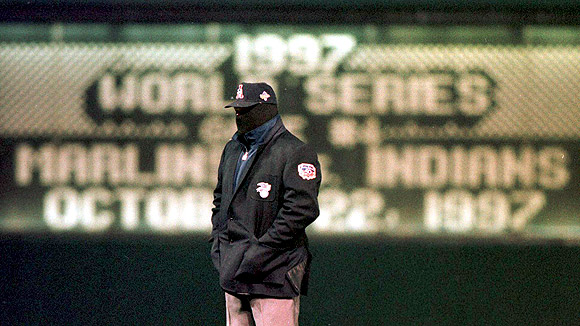 Indians Archive
Indians Archive  View from the Porch: Gaining Perspective Edition
View from the Porch: Gaining Perspective Edition
Baseball is a game of perspective. Every game, every inning, every at bat and every pitch is put in to perspective. Players are under a microscope, whether being observed by the front office, the coaching staff, the opposition, their teammates, or the fans; there is no way to hide in the game of baseball. With so much information and data available, each singular aspect of a player’s season can be evaluated. However, keeping everything in perspective is essential to understanding the game and to enjoying the game.
observed by the front office, the coaching staff, the opposition, their teammates, or the fans; there is no way to hide in the game of baseball. With so much information and data available, each singular aspect of a player’s season can be evaluated. However, keeping everything in perspective is essential to understanding the game and to enjoying the game.
The Indians are going to end the month of May in first place. By how many games they do this is up to them. They may not be on an 18-8 pace for the month, their April record, but a hot start like that gives you the chance to play .500 ball for the rest of the season and still finish the year 86-76. As was previously discussed in this month’s View from the Porch columns, 86 W’s gives you a chance in the Central Division.
This past week was a collection of ebbs and flows for the Tribe. They swept the in-state rival Cincitucky Reds for the first time in seven years and then won a thriller over the hated Bostonians. Enter Josh Beckett and Jon Lester. Jon Lester, including his performance this season, is 41-18 over the last three years. Josh Beckett struggled last year, but this year has gone 14 scoreless innings against the Bronx Bombers and owns a 1.69 ERA.
Following a 14-2 pasting by the Sawks, voices of discontent began to rise. Naturally, while the team was sweeping the Reds, many of these audible notions were mild whispers or completely silent altogether. Some individuals began panicking as if they were in line at Chipotle and they ran out of tortillas. Others were more reserved, getting bread and milk in advance of a snowstorm while observing hectic basketcases loading up multiple carts with cases of bottled water.
And this, ladies and gentlemen, brings me to this week’s View from the Porch Perspective of Baseball.
The Eye Test vs. Statistics
 Undoubtedly, all of the parties involved in baseball, from players and staff to fans, evaluate the players on their team. Many front offices have evolved in to purely
Undoubtedly, all of the parties involved in baseball, from players and staff to fans, evaluate the players on their team. Many front offices have evolved in to purely computer-based analysis using exclusively sabermetrics and more common statistics to gauge a player’s value to the team and his overall performance.
computer-based analysis using exclusively sabermetrics and more common statistics to gauge a player’s value to the team and his overall performance.
To me, there is nothing wrong with this. Statistics can explain a lot of baseball phenomena. To some degree, a stat like BABip, batting average on balls in play, explains the element of luck. Line drive percentage shows a hitter’s ability to barrel up the ball. UZR and Range Factor are two statistics that are able to exhibit a fielder’s performance relative to “average” and ability to cover ground. These are all helpful tools.
Then, there’s the eye test. It is generally adopted by older breed of fans, the ones who grew up without stats like WAR (wins above replacement player) and OPS+ (on-base + slugging adjusted to the player’s home ballpark). These people tend more to take analysis and evaluation on a week-to-week basis. If a guy is not getting to ground balls to his right, then he has bad range. Hitter B is obviously pulling off the baseball and rolling ground balls over to the right side of the infield.
The eye test simplifies what the statistics say. A fan who relies more heavily on the eye test will say that Carlos Santana is pulling off the baseball, rolling over his top hand, and therefore not driving through the ball when he makes contact. A stat-head will look at his 2011 statistics and say that (through May 26), Santana 43.5% more ground balls than line drives.
Nothing is wrong with either approach to evaluating performance. In fact, I find that the best way to evaluate the game is to adopt both. Jack Hannahan is hitting .194 in the month of May. However, his OPS+ for the season is 100, exactly average. Recently, the eye testers have been griping about Hannahan’s performance at the plate. Statistically, he is doing an adequate enough job. Coupled with his defense, he’s been a real asset to the team.
Inherently, therein lays the problem with being close-minded toward one of the approaches to player assessment. Eye testers tend to have a shorter-term memory and are more apt to focus on the player being 3-for-his-last-27 with RISP. But stat-heads have a longer-term memory and would be more apt to focus on how the player is 10-for-42 overall with RISP. Eye testers would be more focused on the present while stat-heads would be focused on the season as a whole.
As I said above, neither approach is wrong and I use both of them. I tend to lean more toward statistics because a personal bias can cloud opinions and maybe produce incorrect judgments. A good balance of both can make you a much more perceptive observer and give you a better perspective of the player that you are watching. Even if they are just opinions, at least have a well-informed one.
The Old “Marathon, not a Sprint” Expression
Take my word for this: You will drive yourself absolutely batshat crazy if you get too high or too low after every game. Admittedly, some games do hurt more than others. Case in point, I was not enjoyable to be around after Tuesday’s loss to Boston. The Indians made four outs on the basepaths, two on extremely questionable decisions and two on caught stealings. The game may have been there for the taking, hanging in the balance and each individual mistake gets magnified times a million.
Anyway, as Manny Acta said at the start of the season, “You’re going to win 60 and you’re going to lose 60. It’s what you do with the other 40 that matters.” In terms of describing the baseball season, perhaps no truer words were spoken.
 As I believe I have referenced in previous VftP posts, my years of being a fan and watching nearly every game has given
As I believe I have referenced in previous VftP posts, my years of being a fan and watching nearly every game has given me a real perspective about the length of the baseball season. If the Indians win, I’m happy for an hour or two and then looking at the next day’s pitching matchup. If the Indians lose, I shake it off in about the same time frame and see what our other division rivals did that night. With 162 games, no one game or one small stretch of games can really dictate the season, with the exception of course of a huge streak one way or the other.
me a real perspective about the length of the baseball season. If the Indians win, I’m happy for an hour or two and then looking at the next day’s pitching matchup. If the Indians lose, I shake it off in about the same time frame and see what our other division rivals did that night. With 162 games, no one game or one small stretch of games can really dictate the season, with the exception of course of a huge streak one way or the other.
So, basically, what I’m saying is, after 14-2 massacres like Wednesday’s game, massive lineup overhauls and raiding the AAA team aren’t necessary. Blowouts are going to happen. Starters are going to be ineffective and long relievers will become sacrificial lambs. Blowout wins and losses each only count for one in their respective columns in the standings. Can they be momentum builders? Sure, in a sense. For example, see how Boston followed up their shellacking of us on Wednesday. But, overall, they count as one game. One game in a season of 162 of them.
Of course, Manny Acta decided to ruin the above point by setting Friday night’s lineup after I had that typed out. For posterity sake, I left my point in there. Why? Perspective. Mine was different from Manny Acta’s and he should probably know his team and their situation better than me. Subsequently, I went and looked at Orlando Cabrera’s career numbers batting second. A .289 average, 14 points higher than any other spot in the lineup. He responded by going 1-for-3 with a BB, and a loud out to left center. The other lineup changes did not do much because David Price is disgustingly filthy and makes 97 on the black look effortless.
Baseball Compared to Other Sports
I will willingly admit that baseball has become my favorite sport since I stopped playing hockey at a competitive level. I am still a huge fan of hockey and also enjoy watching college football, college basketball, and the NFL in that order. Many people seem to be able to watch football and basketball on TV but cannot fathom the thought of paying attention to an entire baseball game on television.
Personally, I like watching them both in person and on TV. Both give me a different perspective of the game. At the Jake, I can see things that I can’t see on TV, such as the jump a guy gets on a stolen base or how the fielders shift based on the count or signs. I also get the joy of irritating whoever I’m at the game with by talking strategy and making other comments.
However, on TV, I can actually see the location of borderline pitches. From my spot on the Porch, close pitches are sometimes tough to distinguish. When watching at home or at the bar, I can post here on TheClevelandFan Forums or on Twitter.
Either form works for me, though I much prefer being at the game. Nothing compares to a sporting event live. Not even a 70” HD TV with surround sound.
Baseball’s Perspective on Life
Perhaps more than anything else, I am drawn to baseball of the perspective it gives me on life. Think about the most basic statistic of all – batting average. If you fail seven out of ten times over the span of your career, you are considered an excellent hitter. It is a game reliant on individual talent to produce a team victory. But at the same time, it is a game reliant on the individual(s) before you setting you up to succeed.
If the hitter in front of you has a nine pitch at bat and strikes out, it still benefits you because you got to see everything the pitcher had to offer. You were able to gauge the break of an offspeed pitch or see what his plan of attack was to that hitter. From that, you can ascertain what you can expect. Like life, it takes the individual coming through based on the help provided by others. Getting a well-paying job is produced by the sacrifice of one’s parents or guardians’ support. The sacrifices to encourage education, whether in public school or paying for private; perhaps even helping finance a college education. The framework is in place. Ultimately, it is up to you to succeed.

Further than that, not many things in life bring people closer together than sports. Through playing hockey, I met some of the best friends I have. Through going to Indians games with my fiancé almost immediately after she moved here in 2006, our relationship strengthened and we developed a common interest and something we can do together. I also take in to account the numerous people I have met at games, and while few of them are friends, the anecdotes and memories are laughable and passed on.
Even more than that, how many of you reading out there have fond memories of playing catch with your father or brother or uncle or a female family member? What about fond memories of going to games with your old man or another relative? Maybe a significant other or best friend?
When all is said and done and I’m looking at the last few days of my life, there will be certain events that I’ll look back and reflect on. The day I met my fiancé and our wedding day. With any luck, the days my children were born. With even more luck, the days their children were born. And I’ll look back at baseball games. Games that stamped memories in my mind and in my heart.
At the end of the day, baseball may seem inconsequential to most. Not me. Again, it’s a matter of perspective.
One final note: I would be remiss if I did not mention and thank reader Chris B. for shooting off a quick email from one of his humorous incidents while out watching a game based off last week’s VftP Guide to Being a Cleveland Indians Fan. He writes: “Was out on Friday, everyone watching the game on TV. Chris Pérez (yes, he actually added the accent mark!) on the mound. Guy next to me asks ‘What inning is it?’” To which Chris adds, “Ummmmm, I think our CLOSER is on the mound, so it must be the 9th!?!!?!?”
Thanks for reading, Chris, and I appreciate the email. If anybody has any other stories or anecdotes from your nights out, either at the game or out watching it, shoot them over to adam@theclevelandfan.com and I’ll be sure to add them to that week’s View from the Porch.
Follow me on Twitter @SkatingTripods
- NBA Announces 2013-2014 Schedule
- Browns Ink Sharknado
- Sharknado A No-Show For Rookie Camp
- Trent Richardson Out Until Training Camp
- Browns Sign Brandon Jackson
- Carrasco Suspended Eight Games
- Browns Add to Wide Receiver Depth with David Nelson
- Browns Need to Learn from Past Draft Mistakes
- Browns Release Chris Gocong and Usama Young
- Browns Missing on Grimes Disappointing, But Not The End
The TCF Forums
- Chris Grant's first 3 drafts
Kingpin74 (Tuesday, January 21 2014 10:13 AM) - The 2014 Offseason Thread
googleeph2 (Tuesday, January 21 2014 9:36 AM) - 2015 Recruiting
furls (Tuesday, January 21 2014 6:57 AM) - Mike Brown
YahooFanChicago (Monday, January 20 2014 11:15 PM) - Movies coming out
HoodooMan (Monday, January 20 2014 9:34 PM) - 2014 Hoops Hockey Hijinx
jpd1224 (Monday, January 20 2014 4:44 PM) - 2014 Recruiting
jclvd_23 (Monday, January 20 2014 2:26 PM) - Wish List - #4 Pick
Hikohadon (Monday, January 20 2014 1:26 PM) - Official- Browns Coach Search/Rumors
OldDawg (Sunday, January 19 2014 6:48 PM) - #1 overall pick Anthony Bennett
TouchEmAllTime (Sunday, January 19 2014 1:28 PM)



